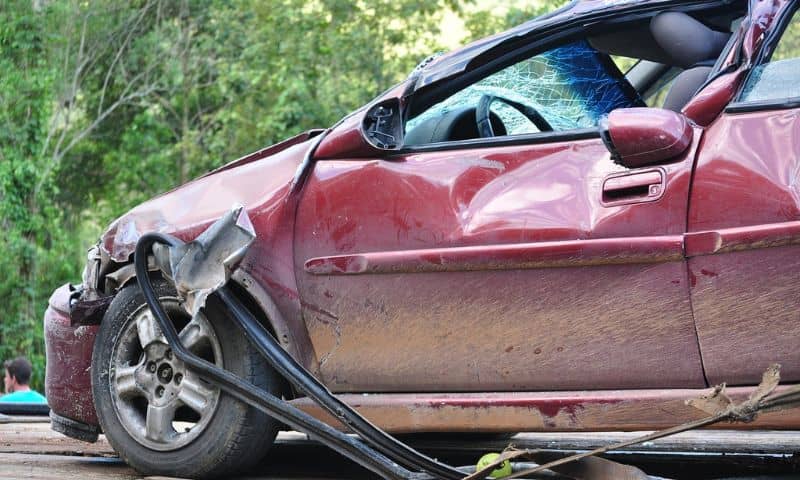
How Long Do You Have to Report a Car Accident to Your Insurance Company in West Virginia?
Dealing with insurance companies after a car accident is a pain, especially when you’re hurt or in shock. The last thing you want to worry about is reporting deadlines. But many providers actually require fast notification—some within 24 hours after a crash.
Unfortunately, there’s no standard timeline for all West Virginia auto insurers to follow. Each company sets its own rules. If you miss the target date for your specific provider, your claims may get denied.
In this article, we’ll explain the specifics of reporting timeframes so you’ll know exactly when you need to notify your insurance company. As attorneys who handle car accidents all the time, we get that legal stuff adds stress after an already difficult situation. So, we’ll also share some quick tips to make reporting the basics less painful so your claim gets rolling. One less hassle, one less gray hair.
Most Accidents Should be Reported Even if No Immediate Injuries Occur
Some people mistakenly believe you only need to report an accident if major vehicle damage or injuries occurred.
But even minor fender benders should be reported for several important reasons:
- It creates a documented history of the incident in case injuries develop later on.
- It allows the insurance company to fully investigate liability and settlement responsibilities immediately after the crash.
- It provides the policyholder with an official record if disputes arise later about fault or damages.
- It can help prevent fraud accusations down the line if there are long gaps between an accident and the claims filed.
Unless the accident was truly trivial, it’s smart to notify your insurer about any collision involving your insured vehicle.
While No Strict Deadline Exists in West Virginia, Prompt Reporting is Highly Recommended
Unlike some other states, West Virginia does not have a firm legal deadline for reporting crashes to insurance companies. However, you should notify your provider as soon as reasonably possible for your own protection.
In ideal scenarios, contact your insurer and determine if you should file a car insurance claim within 24 hours of the accident occurring. The sooner details are memorialized, the better for claims investigations. Extended delays can create skepticism about the validity of subsequent claims.
File a Police Report to Create an Official Record, Especially for Injury Accidents
Even if officers did not respond to the actual crash scene, you should still file an incident report at the local police station. Filing a report is important even if there is only property damage with no injuries.
Having an official report to reference can help facilitate insurance claims. Police reports carry significant weight as legal documents detailing what transpired.
For any accident where injuries result, creating a police record is vital. Your memory of how the crash unfolded can fade quickly. The report preserves key facts while still fresh.
Consequences of Delaying Notification to Your Insurance Provider
While you may have up to two years to file a personal injury lawsuit in West Virginia, waiting too long to report the accident itself can weaken the merits of your claims.
For example:
- As time passes, details about how the crash occurred and who was at fault may get hazy. Eyewitness recollections fade. Skid marks disappear from the scene. Security camera footage gets recorded over. This impairs investigators’ ability to accurately assess liability.
- Insurance adjusters may suspect you are committing fraud if a long gap exists between your accident date and notice of claims for injuries, lost wages, or car repairs. Inconsistencies in your version of events get scrutinized more closely.
- The at-fault driver’s insurance company may dispute liability if not notified in a timely manner. This results in denied or reduced claim payments.
Be Sure to Also Report Minor Accidents With No Immediate Injuries
As mentioned earlier, even a “fender bender” should be reported to your provider for proper documentation. You may feel fine initially and don’t expect to file a claim. But sometimes, pain or other issues develop gradually in the hours or days after an accident as inflammation sets in.
Having the incident on record gives you the option of seeking damages if you realize later on that the crash caused physical or mental harm. Without prompt notification, the insurer may argue the subsequent problems are unrelated.
Contact an Attorney About Your Options if Late Reporting Issues Arise
If you failed to promptly report your accident for some reason, all may not be lost. An experienced lawyer can assess the circumstances and possibly help preserve your rights to make claims even with late notification.
We can also advise how to deal with allegations of delayed reporting from insurance companies. In certain situations, compelling arguments can still be made to obtain fair compensation, even with reporting gaps.
Don’t Jeopardize Your Claim Rights – Report Accidents Promptly in West Virginia
To summarize, here are some key steps and timelines to follow after a car accident in West Virginia:
- Notify the police to file an official incident report, especially if any injuries or significant damage occurred. Provide as much documented evidence about the collision as possible.
- Contact your insurance provider within 24 hours to report the accident. Explain what happened and your intent to file a claim regarding vehicle repairs, medical treatment, lost wages, etc.
- If pain or problems develop later on from latent injuries, update your insurer about the emerging issues immediately. Seek medical attention right away as well.
- Speak to an attorney knowledgeable in West Virginia car accident law for guidance if reporting or claim disputes arise with insurance companies. You may still have options.
At Miley Legal, our attorneys provide compassionate counsel to car accident victims throughout West Virginia. If you were injured in a crash and have questions about insurance claims or accident reporting, contact our office for a free consultation today. We’re here to protect your rights every step of the way.


